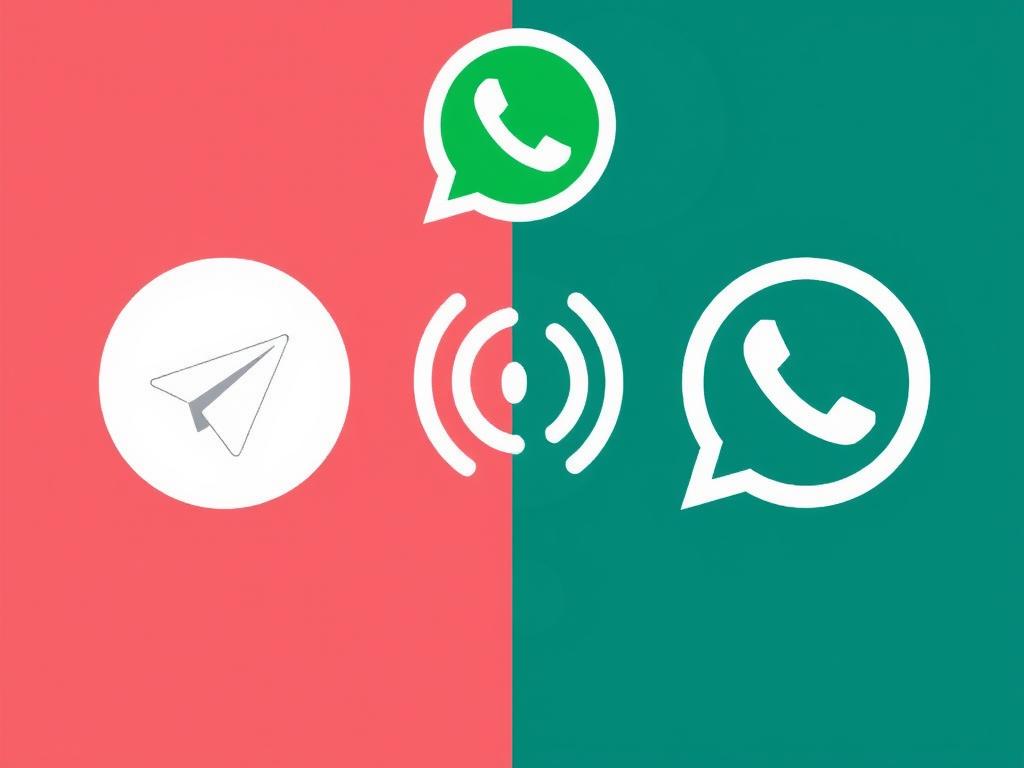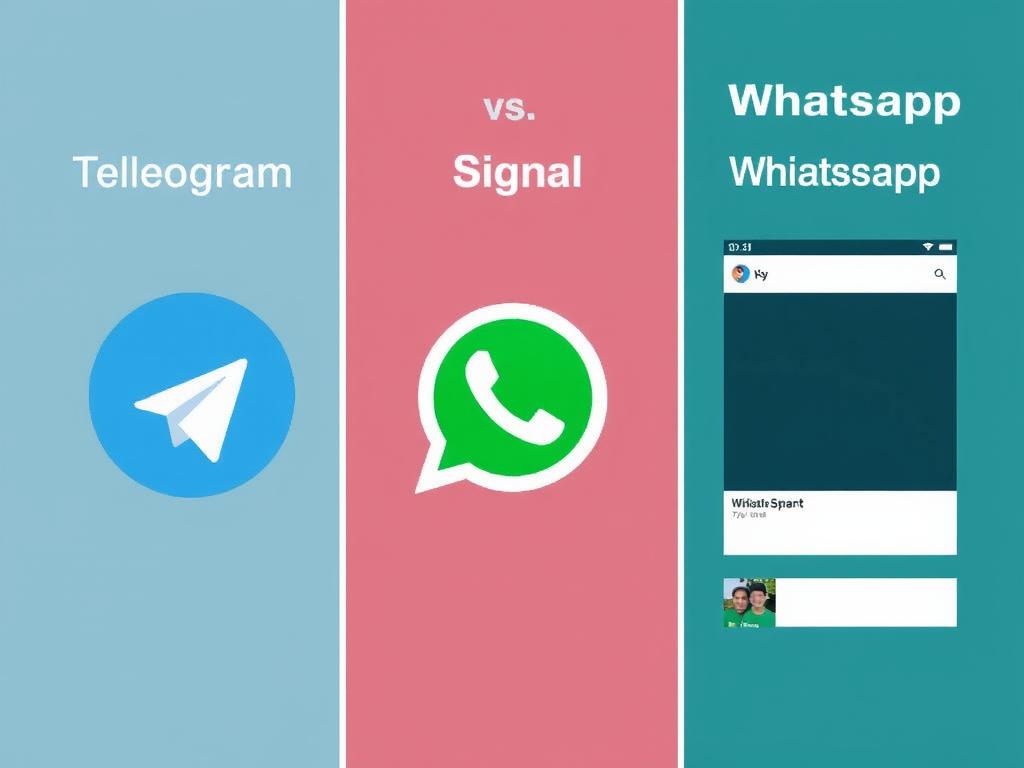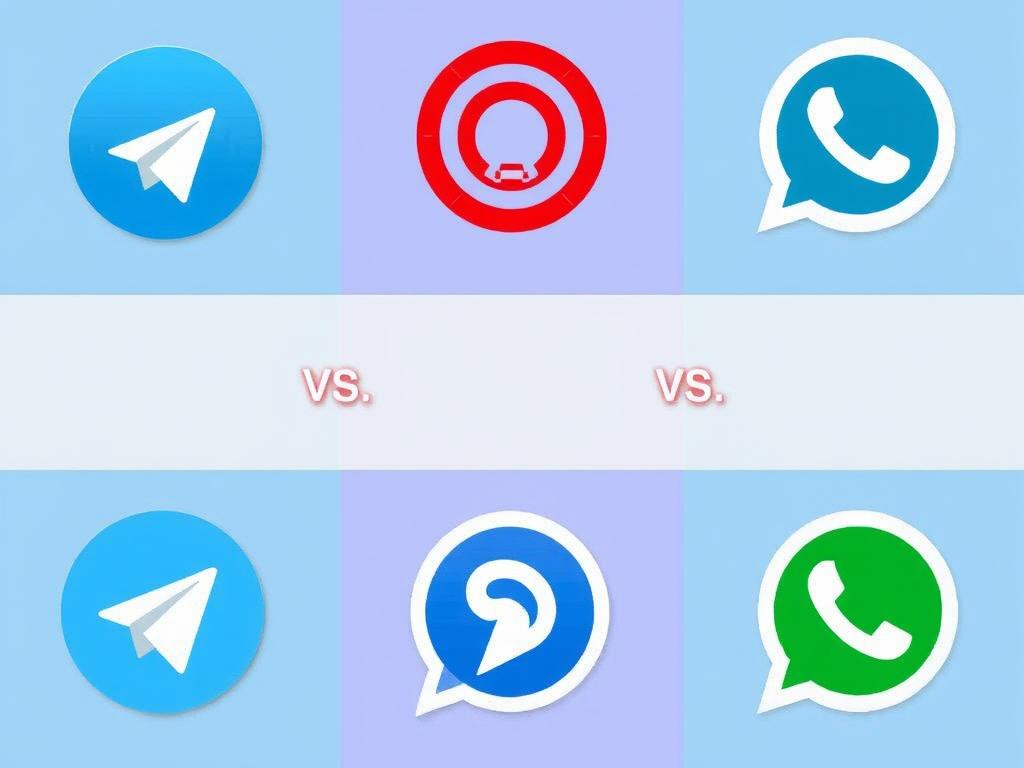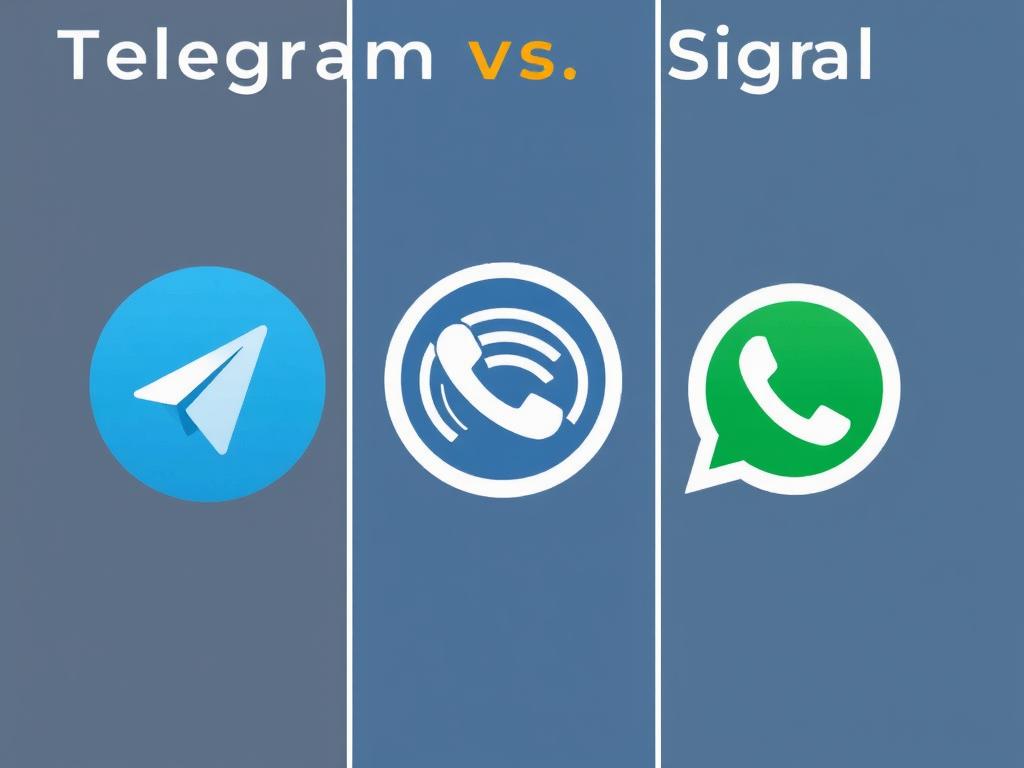Telegram vs. Signal vs. WhatsApp: Privacy & Features Compared
In today’s fast-paced digital world, staying connected has never been easier. Messaging apps have become an essential part of our daily communication, whether it’s for chatting with friends, collaborating with coworkers, or staying updated with the latest news. Among the plethora of available messaging platforms, three giants stand out: Telegram, Signal, and WhatsApp. Each of these apps promises unique features and varying levels of privacy, but deciding which one fits your needs isn’t always straightforward. In this article, we will explore Telegram vs. Signal vs. WhatsApp in terms of privacy, features, security, usability, and more, helping you make an informed choice that aligns with your communication preferences.
The Popularity and Background of Telegram, Signal, and WhatsApp

Before diving deep into privacy and features, it’s helpful to understand where these apps come from and why they have grown so popular. WhatsApp, launched in 2009 and later acquired by Facebook (now Meta) in 2014, quickly became the world’s most popular messaging app due to its simplicity and integration with phone numbers. Signal emerged as a privacy-focused competitor developed by a nonprofit organization called the Signal Foundation in 2014, strongly emphasizing secure communication. Telegram entered the scene in 2013, created by Russian entrepreneurs Pavel and Nikolai Durov, and became known for its speed, cloud-based messaging, and user-centric features.
Each app appeals to slightly different audiences, and this diverse appeal contributes to the ongoing debate: Telegram vs. Signal vs. WhatsApp, which one is best for you?
Privacy at the Core: How Do Telegram, Signal, and WhatsApp Protect Your Data?
When it comes to messaging, privacy is often the highest priority for users. So the question is: how do Telegram, Signal, and WhatsApp stack up against each other in keeping your messages safe from prying eyes?
End-to-End Encryption: The Gold Standard
End-to-end encryption (E2EE) ensures that only the sender and recipient can read the messages, preventing even the company running the service from seeing the content. Here’s a simple breakdown of E2EE status across the three apps:
| App | Default End-to-End Encryption? | Scope of E2EE |
|---|---|---|
| Yes | All messages, calls, and media | |
| Signal | Yes | All messages, calls, and media |
| Telegram | No (by default) | Only “Secret Chats” have E2EE; regular chats use server-client encryption |
WhatsApp and Signal both secure your standard chats and calls with end-to-end encryption by default, which is a huge plus for any privacy-conscious user. Telegram offers end-to-end encryption but only in its optional “Secret Chats” mode; regular chats are encrypted between your device and Telegram’s servers, meaning the company could technically access your messages.
Data Collection and Metadata
While messages are important, so is metadata — the data about your data, such as who you message, when, and from where. This metadata can reveal a lot about your habits and connections.
– **WhatsApp** collects significant metadata for operational purposes and shares data with its parent company Meta, which has raised privacy concerns.
– **Telegram** collects some metadata but claims it is limited and not shared with third parties. It stores chats on cloud servers for easy accessibility.
– **Signal** collects minimal metadata. It only stores the date and time when a user registered and the last connection date — almost nothing else.
This metadata difference is critical when weighing privacy between Telegram vs. Signal vs. WhatsApp. If minimal data collection is important to you, Signal clearly leads the pack.
Open Source and Transparency
Open-source code allows independent experts to examine an app’s security, providing an additional layer of trust.
– **Signal’s** entire app and server code are open source — it is widely respected by privacy advocates.
– **Telegram** offers open-source code for its client apps, but its server code remains closed-source, which raises concerns about transparency.
– **WhatsApp** is proprietary and closed source, meaning its security cannot be independently verified by the public.
Features Breakdown: Beyond Privacy – What Can Each App Do?
Privacy is essential, but messaging apps also need to deliver robust, user-friendly features to stand out. Let’s see how Telegram vs. Signal vs. WhatsApp compare feature-wise.
Messaging Capabilities
– **WhatsApp:** Offers text messaging, voice and video calls, group chats of up to 1024 participants, voice notes, and disappearing messages. You can also share statuses similar to stories.
– **Telegram:** Supports text, voice, and video calls (though video calls arrived later in comparison), huge group chats of up to 200,000 members, broadcast channels, and powerful bots for automation and games. Telegram also has unique features like polls, quizzes, and cloud-based media storage.
– **Signal:** Provides encrypted text messaging, voice and video calls, disappearing messages, view-once media, and recently introduced group video calls. Group sizes are smaller compared to Telegram but adequate for most users.
Multi-Device Support and Synchronization

Reliable synchronization across devices is key for users who switch between phones, tablets, and desktops.
– **WhatsApp** supports multi-device functionality but still requires your phone to be connected for most features.
– **Telegram** shines with its cloud-based architecture, allowing full synchronization across unlimited devices without needing the phone to be online.
– **Signal** has gradually improved multi-device support, but it remains more limited than Telegram’s seamless syncing.
Media and File Sharing

Here’s how the apps handle sharing:
| Feature | Telegram | Signal | |
|---|---|---|---|
| Max File Size | Up to 100 MB | Up to 2 GB | Up to 100 MB |
| Cloud Storage | No (local storage only) | Yes (cloud-based) | No (local storage only) |
| Media Compression | Yes (compresses images and videos) | Optional compression or send original | Yes (compression applied) |
Telegram’s generous 2 GB file-sharing capability and cloud-based storage make it ideal for sharing large files and accessing messages anywhere. WhatsApp and Signal are more restrictive, with lower file size limits and no cloud storage.
Customization and User Experience
Each app offers distinct user experiences:
– **WhatsApp** has a simple, straightforward interface making it easy even for first-time users.
– **Telegram** offers extensive customization, including animated stickers, chat folders, themes, and bots that enhance usability.
– **Signal** focuses on minimalism and privacy but has added customizable reactions and themes recently.
Security Features: Digging Deeper
Besides encryption, what extra security tools do Telegram, Signal, and WhatsApp provide for users who want to lock down their conversations?
Two-Factor Authentication (2FA)
All three apps provide two-factor authentication, adding an extra layer of security by requiring a PIN or password alongside your phone number login.
Screen Security and Message Self-Destruction
– Telegram supports “Secret Chats” that not only use E2EE but can be set to self-destruct messages after a timer automatically deletes them.
– Signal offers disappearing messages at configurable intervals and recently added “View Once” media that disappears after being viewed.
– WhatsApp also has disappearing messages but with fewer timer options compared to the other two.
Account Security and Spam Protection
All three apps offer various tools to combat spam and unauthorized access, such as blocking unknown users, reporting suspicious behavior, and encrypted backups in Signal and WhatsApp.
Pricing and Monetization: Free or Paid?
None of these three apps require a subscription fee—you can download and use Telegram, Signal, and WhatsApp for free. Here’s what you need to know about their funding models:
– **WhatsApp** is free but monetizes through Facebook’s advertising ecosystem and data aggregation, leading to some concern over privacy.
– **Signal** operates as a nonprofit funded by donations and grants, ensuring its mission focuses purely on user privacy.
– **Telegram** is mostly free but is exploring optional paid features and channels to support its growth, while promising to maintain free basic services.
Community and Ecosystem: Who Has the Best Support and Add-Ons?
Having a vibrant ecosystem can enhance your messaging experience through bots, integrations, and support communities.
– Telegram boasts thousands of bots that perform countless functions, from productivity tools to entertainment.
– Signal is more minimalist but has growing support for integrations.
– WhatsApp integrates well with Facebook’s ecosystem but has limited third-party customization.
Use Case Scenarios: Which App Fits Different Needs?
To choose between Telegram vs. Signal vs. WhatsApp, consider your specific priorities and communication patterns. Here’s a simple guide:
- If privacy is your top priority: Signal is the best choice with its strict data minimization and default end-to-end encryption.
- If you want rich features and large groups: Telegram excels with its massive group capacity, bots, and cloud storage.
- If ease of use and widespread adoption matter: WhatsApp remains the most popular globally, making it easiest to connect with most contacts.
Table: Quick Comparison Summary
| Criterion | Telegram | Signal | |
|---|---|---|---|
| Default End-to-End Encryption | Yes | No (only secret chats) | Yes |
| Group Chat Size | Up to 1024 | Up to 200,000 | Up to 1000 (increasing) |
| Max File Size | 100 MB | 2 GB | 100 MB |
| Open Source | No | Partial (client only) | Yes |
| Cloud Storage | No | Yes | No |
| Data Collection | High | Medium | Minimal |
| Multi-Device Sync | Limited | Excellent | Growing |
Conclusion
In the ongoing battle of Telegram vs. Signal vs. WhatsApp, the “best” messaging app ultimately depends on your priorities and how you balance privacy, features, and convenience. If your main concern is ironclad privacy with minimal data collection, Signal is the clear leader, offering full end-to-end encryption by default and a transparent, open-source model. Telegram sits comfortably in the middle ground, delivering impressive features like massive group capacity, cloud-based storage, and customizability, but with less stringent default encryption and some questions around data security. WhatsApp’s massive user base, simple interface, and default end-to-end encryption make it the most accessible choice but bring inevitable data-sharing concerns linked to its parent company Meta. By understanding the strengths and weaknesses of each, you can choose the app that fits your lifestyle—whether that means locking down your chats, joining massive communities, or simply chatting with as many people as possible. Whatever your choice, being aware of what lies behind the user interface helps you communicate smarter and safer in a digital age where privacy matters more than ever.







